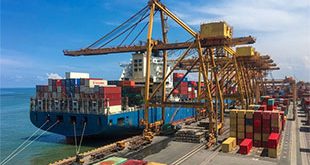
Brussels, Belgium | AFP | China’s foreign minister lashed out Monday at “abnormal, immoral” attacks on Huawei amid growing concern, led by the US, that the telecom giant poses a security risk to the West.
Wang Yi demanded a “fair and just competition environment” for Chinese firms as he met EU foreign ministers and officials for talks in Brussels.
His call comes as Washington steps up pressure on allies, particularly in Europe, to shut Huawei out of tenders for fast fifth-generation, or 5G, telecom networks, because of the firm’s ties to the Chinese government.
“China hopes all countries will create a fair and just competition environment for companies of all countries,” Wang told reporters.
“What we oppose is groundless accusations out of political purposes and attempts to bring down a foreign company. We think such practices are abnormal, immoral and have no support from other countries.”
Huawei strenuously denies allegations its equipment could be used for espionage and Chinese Premier Li Keqiang insisted Friday that Beijing would “never” ask its firms to spy on other nations.
A law recently enacted by Beijing obliging Chinese companies to aid the government on national security has added to concerns about Huawei just as European countries begin planning 5G infrastructure.
The US has said the company poses a “threat” to Europe and last week NATO Secretary General Jens Stoltenberg said the alliance took these concerns seriously.
Several Western countries have followed the US lead in barring Huawei from bidding for 5G tenders but Wang urged Europe not to be swayed by US pressure.
“We hope and we believe European countries and other countries will have independence in making their own choice and their own judgment,” he said.
Wang also hit back at a new EU policy document published last week outlining a shift to more assertive relations with Beijing.
The 10-point plan called for more balanced ties, warning that China was a “rival” to the bloc as well as its biggest trading partner.
In response Wang insisted China and the EU were “comprehensive strategic partners” and laid out his own 10-point plan for greater cooperation.
His comments found an echo in EU diplomatic chief Federica Mogherini, who stressed common ground between the two sides and insisted that last week’s policy document was primarily aimed at informing internal debate in Brussels.
 The Independent Uganda: You get the Truth we Pay the Price
The Independent Uganda: You get the Truth we Pay the Price



